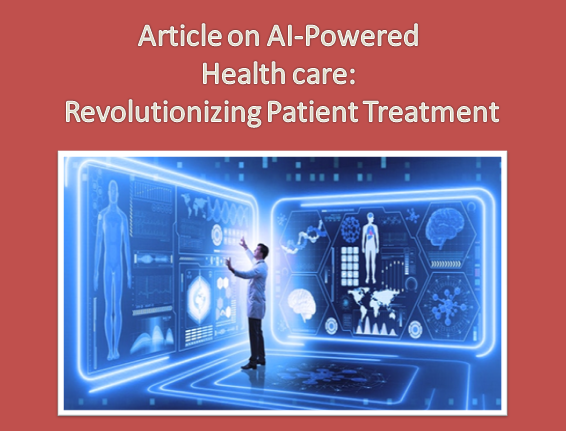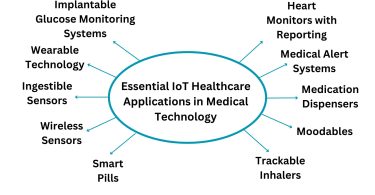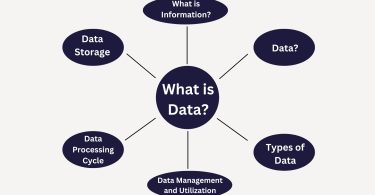Introduction
The healthcare industry has seen a remarkable transformation with the integration of Artificial Intelligence (AI). AI-powered healthcare is ushering in a new era, revolutionizing patient treatment through innovative solutions that enhance diagnosis, treatment plans, and overall patient care. In this article, we will delve into the ways in which AI is reshaping the healthcare landscape, highlighting the numerous benefits it offers to both patients and healthcare providers.
- Advanced Early Detection and Predictive Capabilities
One of the most significant contributions of AI in healthcare is its ability to swiftly and accurately analyze vast volumes of medical data. This capability has opened doors to early disease diagnosis and prediction. Machine learning algorithms can sift through patient data, including medical records, imaging, and genetic information, to detect diseases at their earliest stages. For instance, AI can be a crucial tool in early cancer detection by scrutinizing radiology images, leading to more successful treatment outcomes.
- Personalized Treatment Plans
AI recognizes that every patient is unique, and this knowledge is harnessed to create personalized treatment plans tailored to an individual’s specific needs. By factoring in a patient’s medical history, genetics, and even lifestyle, AI algorithms can recommend the most effective treatment options, medication dosages, and therapies. This not only enhances the likelihood of successful treatment but also minimizes adverse side effects, ultimately reducing healthcare costs.
- Revolutionizing Drug Discovery and Development
AI has also made significant strides in the pharmaceutical industry, where it accelerates drug discovery and development. This field is notorious for its complexity and time-consuming processes, but AI can expedite these processes dramatically. Machine learning models can analyze vast datasets to identify potential drug candidates, predict their efficacy, and even simulate clinical trials, reducing the time and resources required for drug development. This, in turn, has the potential to bring life-saving medications to market faster.
- Remote Monitoring and Telemedicine
AI-powered healthcare extends its reach beyond traditional healthcare settings, facilitating remote monitoring of patients’ health conditions. Wearable devices equipped with AI algorithms continuously collect and analyze patient data, offering real-time updates to healthcare providers. This enables early intervention and reduces the necessity for frequent in-person visits. Telemedicine platforms, enhanced by AI, facilitate virtual consultations, improving patient access to healthcare services and alleviating the burden on physical healthcare facilities.
- Workflow Optimization
Time is of the essence in healthcare, and AI can optimize clinical workflows by automating routine tasks such as appointment scheduling, medical record documentation, and billing. This liberates healthcare professionals to concentrate on patient care, reducing administrative overhead and resulting in improved efficiency and cost-effectiveness.
- Enhanced Imaging and Diagnostics
Planning a diagnosis and course of therapy is crucially dependent on medical imaging. AI algorithms, particularly in radiology, have displayed remarkable capabilities in interpreting medical images. These algorithms can highlight abnormalities, provide quantitative measurements, and aid radiologists in making more accurate and timely diagnoses. AI’s image analysis capabilities extend to pathology as well, where it can enhance the accuracy of tissue sample analysis, leading to more precise diagnoses.
- Predictive Analytics for Disease Outbreaks
AI is an important tool for foreseeing and controlling disease epidemics. By analyzing large datasets, encompassing epidemiological data, social media trends, and healthcare records, AI models can forecast the spread of diseases like COVID-19. This information empowers healthcare systems to allocate resources effectively, implement preventive measures, and respond to outbreaks promptly.
Challenges and Ethical Considerations
While AI-powered healthcare holds immense promise, it also raises significant ethical and privacy concerns. Issues related to data security, patient consent, algorithmic bias, and the potential for job displacement in healthcare need careful attention to ensure responsible AI implementation.
Conclusion
AI-powered healthcare is fundamentally reshaping how patients are diagnosed, treated, and cared for. It offers early disease detection, personalized treatment plans, and streamlined healthcare workflows, ultimately leading to better patient outcomes and more efficient healthcare systems. As AI continues to advance, it promises to transform the healthcare industry into a more patient-centric, data-driven, and effective field, enhancing the quality of care for individuals worldwide. However, it is paramount to navigate the ethical and regulatory challenges diligently to ensure that AI in healthcare is used responsibly and in the best interests of patients and society as a whole.



